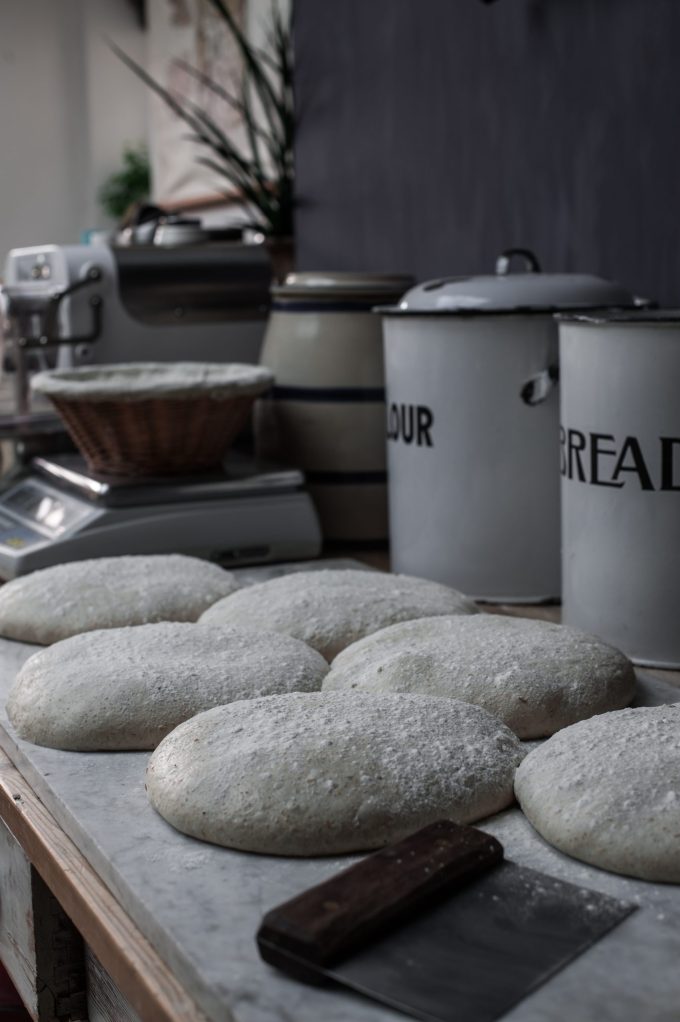A key resting phase in sourdough baking that improves dough handling and final loaf structure
What Is Bench Rest?
Bench rest is the period during sourdough bread making when dough is allowed to relax on the work surface after pre-shaping and before final shaping. This short resting time, typically 15–30 minutes, helps the dough settle and become easier to shape without tearing.
The name comes from the dough “resting” on the bench or counter. It’s a quiet but vital moment in the baking process.
Why Bench Rest Matters in Sourdough
During this phase, the gluten network relaxes, reducing tension from pre-shaping. This makes the final shaping smoother and more effective. Without bench rest, dough may resist shaping or tear, especially in high-hydration or wholegrain doughs.
Bench rest also gives bakers a chance to observe dough characteristics like elasticity and fermentation activity, which can guide adjustments in timing or handling.
At The Sourdough School, we teach this step as part of mindful baking. Connecting observation with touch to develop a deeper understanding of your dough.

How to Do a Bench Rest
After pre-shaping the dough into a loose round or oval, cover it lightly with a cloth or use an inverted bowl to prevent drying. Let it rest undisturbed at room temperature.
Avoid adding flour at this stage, too much can interfere with shaping. The dough should relax but still hold its structure.
This step is essential before forming final shapes like a batard or boule.
Bench Rest in Practice
We explore the importance of bench rest in our 3-Day Introduction to The BALM Workshops and extended sourdough retreats. Students see how different flours, like our Botanical Blend flour, respond during this stage.
Our bread kits and starter kits support home bakers through this process with step-by-step guidance, making it easier to master.
Whether you’re learning in person or online through our community membership, understanding the purpose and timing of bench rest helps improve your results and confidence as a baker.
 Batard
Batard


